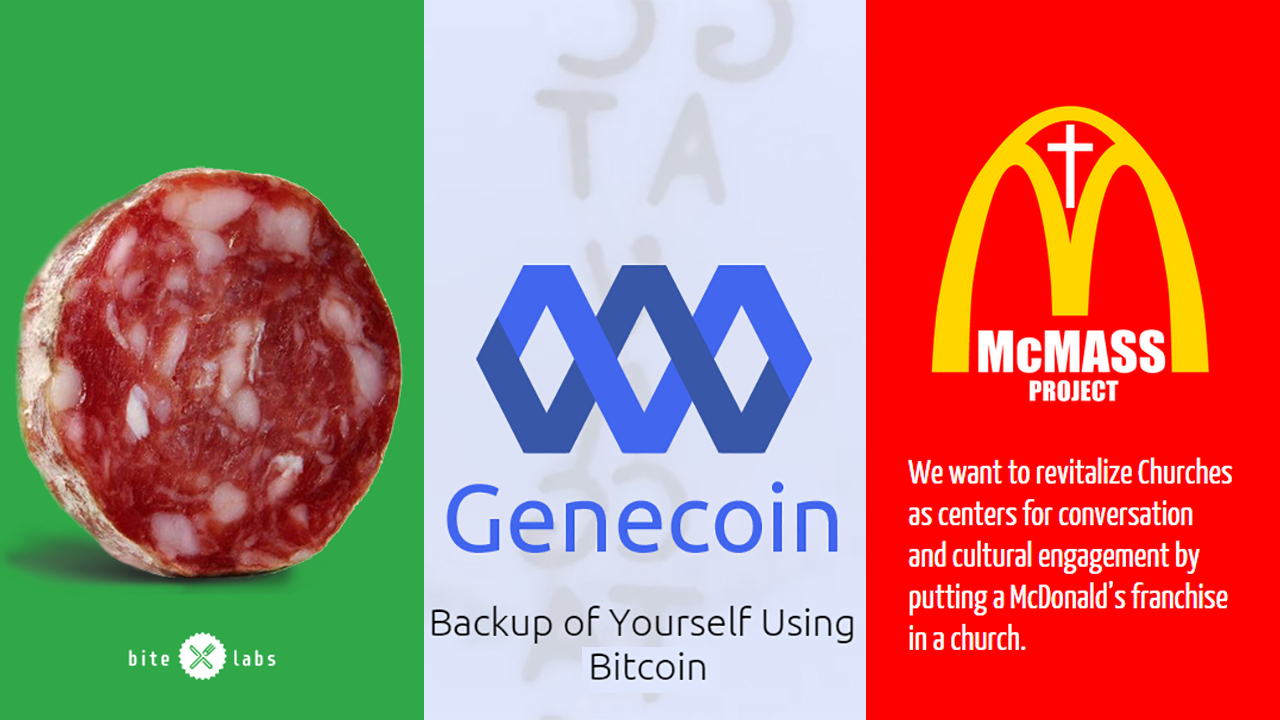Back in February, a website called Bite Labs announced its plan to grow meat from the DNA of celebrities. In November, a group of computer scientists claimed to want to backup your DNA with bitcoin, via Genecoin. Weeks later, an Indiegogo campaign called the McMass Project popped up, aiming to raise $1 million to buy a McDonald’s and convert it into a church. The projects, seemingly unrelated, were met with varying degrees of skepticism by journalists and the internet community at large.
Still, each proposal, supported by a well-designed site and a satisfying level of tech jargon, seemed slightly more within the realm of possibility than the last: Bite Labs gained viral-levels of attention for its sheer absurdity; Genecoin was picked up with amused skepticism; McMass fooled several prominent outlets, including the LA Times, NBC and the ever-paranoid Fox News. ANIMAL reported on the various projects, questioning Genecoin’s veracity and revealing that the McMass Project was, indeed, a joke.
Now, an art collective — or future brand, as its Facebook page claims — has come forward claiming ownership in an email to ANIMAL. The group calls itself Hello Velocity, and indeed, the three company sites now each have tiny “hi” logos as the bottom of their pages (though it doesn’t link back to Hello Velocity). In the email exchange, Hello Velocity said it’s preparing to launch in a month and explained, “We want to see how ideas spread.” Its three projects are “designed to spread through the internet, and engage the public in their respective subjects.”
Amelia Winger-Bearskin, a graduate student in NYU’s Interactive Telecommunications Program who co-founded the school’s “Stupid Shit No One Needs & Terrible Ideas Hackathon,” told ANIMAL that Hello Velocity is real and is “not a publicity stunt from a larger company,” but a bunch of “design interruptors.” The McMass Project was first presented by two men at the November hackathon, and Winger-Bearskin says that she knew the same people were behind Genecoin and Bite Labs, but does not what the group’s future plans are.
Winger-Bearskin likened Hello Velocity’s current work to that of The Yes Men, the culture jammers who have used satire to expose truth and harsh realities about politics and corporations for over a decade. In the case of Hello Velocity, comprised of at least two men (the email mentions three) who are versed in art, design and technology, we are seeing satire that exposes the limits of online journalism, mocks the idolization of start-ups, and capitalizes on the general public’s appetite for sensationalism. “Satire is a brilliant way of engaging in this kind of public discourse,” said Winger-Bearskin — though she warned that it can be disorienting for both the artist and the audience, adding, “at the same time, it can end up just becoming consumed content.”
Note: This post was updated on Monday morning to include details from a second email from Hello Velocity.






